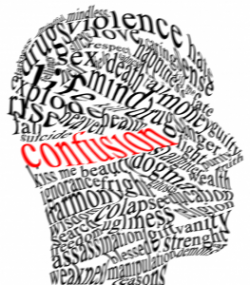What is Schizophrenia?

Get help today!
Schizophrenia is defined as a psychotic disorder that is chronic, severe and disabling in nature. The condition has been found to affect about one percent of Americans and is more prevalent in families who have a past history of other members having been diagnosed with schizophrenia.
People who suffer from this problem are likely to have trouble in everyday life as a result of the antisocial skills, disorganized behaviors, ill perceived thoughts, paranoia and hallucinations. Often resembling a panic disorder, schizophrenia can cause people to hear voices that don’t exist, suffer from extreme auditory hallucinations, exhibit signs of agitation and irritability and otherwise just function poorly.
It is very common for people who suffer from schizophrenia to talk irregularly and for others to have difficulty understanding what they are saying. The condition can cause an individual to spend hours alone without any movement or speech or it can cause major outbursts at the seemingly most awkward times. To an outsider, an individual who has schizophrenia may seem normal when he or she is quiet but as soon as conversation begins the true symptoms can begin to show.
Schizophrenia Diagnosis is Scary but there is Treatment
If you or a loved one has been diagnosed with schizophrenia this can be a really scary time in your life. Diagnosis is often a saddening and scary part of the recovery process but it’s a necessary step in the right direction. Once you’ve been diagnosed with schizophrenia you can begin to learn how to cope with the symptoms, what treatments are available to help you and how you can improve your quality of life. Many different community resources and other psychosocial treatments are available in addition to medications that can make living with schizophrenia more manageable.
While the causes of schizophrenia are unknown, there are treatments available to those who have been formally diagnosed with this psychotic disorder. Antipsychotic medications such as Thorazine, Haldol or Seroquel can help to reduce the impact that schizophrenia has on your daily life by reducing symptoms or keeping them out of the picture all together.
Medication will be required for a lifetime unless other methods of treatment or a cure for schizophrenia are found. At this time, there is no known cure so the only real help is to learn how to effectively manage symptoms with medication and how to avoid triggers or other situations which can lead to crisis and major schizophrenia episodes. Counseling and psychosocial therapy can help with some of the behavioral upsets and disturbances that occur as a result of schizophrenia.
You are not alone! Many people suffer from schizophrenia and require treatment in order to stay focused and on track. Sticking to the treatment plan that is outlined by your doctor or healthcare professional can help to keep symptoms to a minimum and reduce the amount of disruption that schizophrenia causes in your life.
